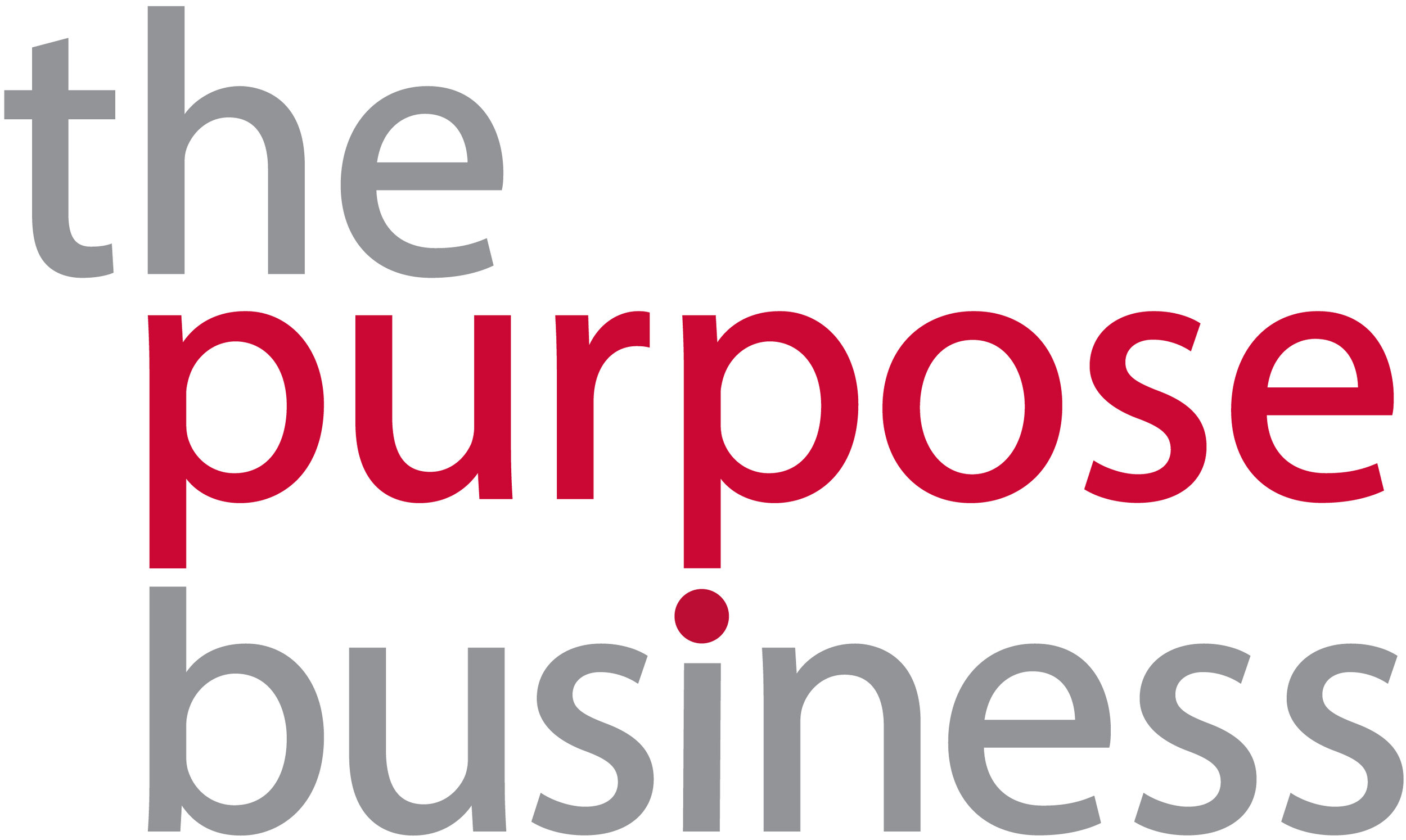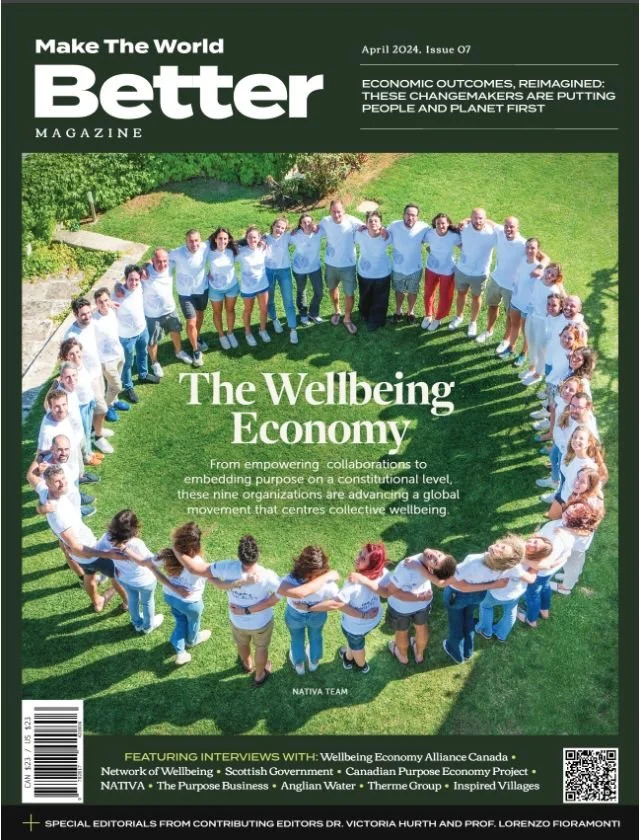Purpose + leadership = Responsible growth
TPB’s Founder & Director, Pat Dwyer, looks at how business needs both purpose and leadership if they are calculating on achieving responsible growth.
As a consultant committed to helping Asian companies embrace responsible business practices, it is very encouraging to find global publications running these kind of headlines: Rethink the purpose of the corporation, and Shareholders are being dethroned as rulers of value. And my favourite – that also makes for a great boardroom discussion – Beyond the bottom line: should business put purpose before profit?
The start of a New Year – be it Lunar or otherwise – is a great chance for people with energy and determination to make a positive impact, to pursue a better version of themselves, and work for the benefit of our wider communities. Many people write a similar list for their organisations. They may be roadmaps that outline revitalised focus and goals, or town hall messages entitled ‘StratPlan 2019’, ’10 year plan’ or ‘Road to 2030’. However, there is a very compelling reason for the increasingly interlinked topics of purpose and the role of corporations. It gives serious food for thought to business leaders at the end of one year and the start of another to ask: how can businesses be a force for good, without sacrificing return?
We are no longer talking about making positive impact on the fringes, in other words philanthropy or charity work. Rather, we are looking for businesses to create value for various stakeholder groups whilst ensuring steady growth and without compromising resources over the long term.
At The Purpose Business, we believe the answer lies in a simple equation:
Purpose + leadership = responsible growth
These three concepts are not simply linear, nor are they one-directional or single-shots. Together they are a multi-dimensional commitment, which, like many others, require constant review and renewal.
Purpose
By now, we all have heard versions of ‘it’s not the what, it’s the why’. Companies are urged to revisit – and if it doesn’t already exist – define and articulate their purpose. It is the company’s north star, its reason for existence. It is what the rest of the community would miss if the company no longer existed. It is therefore not synonymous with profit. Martin Wolf, Chief Economics Commentator at the Financial Times who urged us to rethink the purpose of the corporation just before Christmas. He called it straight up: “Profit is not itself a business purpose. Profit is a condition for – and a result of achieving purpose. …If a business substitutes making money for purpose, it will fail.” As such, profit should be seen as an enabler. A resource. A currency that allows companies to operate and further deliver on its purpose.
In our course of work, we often get asked what is the interplay between profit and purpose? “What should come first?”, many C-suite leaders inquire genuinely expecting a black or white answer. I can therefore understand their disappointment when we respond with another question: why the ‘either-or’? In truth, it is not a question of purpose versus profit. Neither is it choosing purpose over or before profit. Purpose is always there – it does not change. Regardless of the bottomline, Disney will endeavour to create great family entertainment. Healthy food chain Pret a Manger will never waiver from creating good, handmade food. Purpose is a given and is long-lasting. Success is finding the balance of how purpose can help drive profit, and how profit will reinforce activating purpose.
Success is finding the balance of how purpose can help drive profit, and how profit will reinforce activating purpose
Leadership
Long before it found its hashtag, many executives had already claimed that a clear sense of purpose “accelerates their growth and deepens their impact in both their professional and personal lives.” The Harvard Business Review calls this “process of articulating purpose and finding the courage to live it – purpose to impact – the single most important developmental task a leader can undertake.”
Clarity of purpose drives leaders to activate it each and every day, in every single thing they do. They are fully aware of and take responsibility for their actions, whether they lead to successes or failures. It is a humbling leadership style, because one does not drive it from the front or the top all the time. However, it usually lends itself to being authentic and grounded.
Responsible Growth
As the world’s business and political leaders reflected on their discussions at the annual meeting at the World Economic Forum (WEF) summit in Davos, among the dominant themes was humanity’s role in building resilience through collaboration to address the challenges of the uncertainty that we face. Examining the ‘humanness’ at the heart of the issues and our responses to them, demonstrates and impresses the value of purpose-driven thinking even further. WEF confirms its role – it’s purpose – as a convenor “to shape a new framework for global cooperation,” and its greater emphasis on community engagement and insight generation and sharing, sending a strong message about what it means to operate responsibly in today’s world.
The annual WEF Global Risk Report is a must-read for anyone planning a resilient business, and environmental issues again topped the headlines in their 2019 Report – in terms of both likelihood and scale of impact. Environmental concerns accounted for three of the top five risks by likelihood and four by impact. “Of all risks, it is in relation to the environment that the world is most clearly sleepwalking into catastrophe,” the report warns whilst also emphasising how interconnected the different risks are.
The urgency of environmental challenges and the voice of civil society delivered two of the standout pieces in the 2019 Davos diary. Firstly, Prince William’s interview with Sir David Attenborough emphasised the interconnectivity between humanity, nature and responsible growth: “We are all one world…We are destroying the natural world, and with it ourselves.” Secondly, the transparent culpability of world business and political leaders for insufficient action to address climate change was called out by 16 year-old Greta Thunberg. “Some people, some companies, some decision makers in particular have known exactly what priceless values they have been sacrificing to continue making unimaginable amounts of money. And I think many of you here today belong to that group of people.” The awkward applause by the delegates in the room made it clear that the world knows what responsible growth looks like, and it’s time for everyone to up their game.
In business, responsible growth happens when a clear sense of purpose is driven from the top and is embedded across the organisation in a manner that drives the way it treats its people, conducts processes, and develops and delivers their products. It requires a shift in from the short-terminism that financial performance is so accustomed to. BlackRock CEO Larry Fink’s 2019 letter to CEOs restated his belief on the importance of purpose and its importance to corporate success: “when a company truly understands and expresses its purpose, it functions with the focus and strategic discipline that drive long-term profitability.”
I’m optimistic that more and more leaders will come out and call for action around purpose , leadership and responsible growth. Purpose + leadership = responsible growth is a powerful framework for strategic planning, that can unlock your potential in terms of economic, environment and social impact. As with all equations, balance and strong foundations are important. So authenticity, transparency and communication are vital. But get this right and success will start to really add up.




